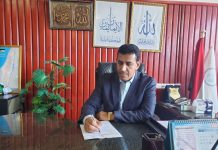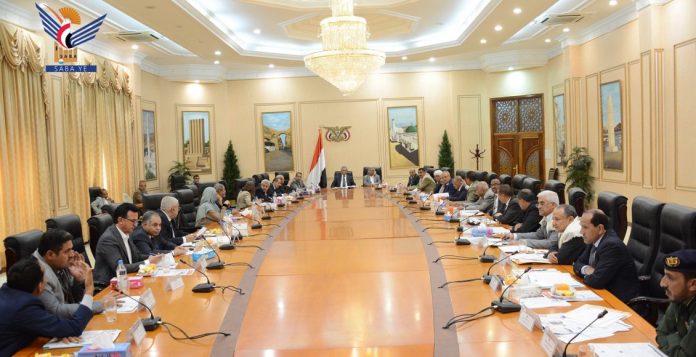The Council of Ministers approved at its regularly scheduled meeting, which was held Sunday in Sanaa and presided over by Prime Minister Dr. Abdulaziz Saleh bin Habtoor, a draft matrix of procedures to strengthen and develop drug control mechanisms.
This comes after the cabinet adopted the findings of a ministerial committee led by Lieutenant General Jalal Al-Ruwaishan, which was tasked with developing a matrix of government drug-fighting measures and reviewing a draft legislation on narcotics and psychotropic substances.
The Cabinet emphasized the importance of supporting drug control efforts, strengthening judicial work and law enforcement, and activating the national partnership to combat this scourge.
Steps to activate international collaboration in coordination and anti-drug activities were also included in the matrix.
The Council of Ministers lauded the ministerial committee’s efforts in preparing the matrix, urging the Ministry of Interior to coordinate with the relevant authorities, prepare the policies proposed in the matrix, and submit them to the Council for discussion and adoption.
During the Cabinet meeting, the Speaker of the Parliament, Yahya Al-Ra’i, reviewed the nature of Yemen’s challenges in light of separatist tendencies and small projects that some are working on with the support of the Saudi-led coalition countries, as well as their negative impact on any path towards achieving a just and honorable peace for the Yemeni people.
Al-Ra’i underlined the significance of keeping up with developments in the political process and negotiations, both positive and negative.
He affirmed that the Ministry of Education has to be supported to meet the fundamental needs of the educational process and ensure its stability.
In its meeting, the Cabinet renewed its warm congratulations to the families of the prisoners and abductees who were released during the month of Ramadan and their return to the homeland, confirming that efforts are continuing to release all prisoners and abductees who are still in the detention centers and prisons of the coalition countries and their mercenaries at home.




















